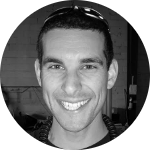With the exception of [Eric Evenchick], the Hackaday crew are safely back from Defcon and not missing in the desert. This means we can really start rolling out all the stuff we saw this weekend, beginning with an interview with [Joe Grand], creator of the JTAGulator, early member of l0pht, and generally awesome dude.
The focus of [Joe]’s many talks this year was reverse engineering circuit boards. Most of these techniques involved fairly low-tech methods to peel apart circuit boards one layer at a time: sandpaper and milling machines are the simplest techniques, but [Joe] is also using some significantly more uncommon methods. Lapping machines get a mention, as do acoustic microscopy, CAT scans, and x-rays. [Joe]’s Defcon talk isn’t up on the intertubes yet, but his BSides talk about techniques that didn’t work is available.
In case you forgot, [Joe] is also a judge for a little contest we’re running, and we asked what he’s looking for in a truly spaceworthy entry. [Joe]’s looking for projects with a lot of effort put into them. Don’t get us wrong, project that require no effort can be extremely popular, but documentation is king. [Joe] thinks well documented projects are evidence project creators are building something because they want to build it, and not because they want to win a prize. That’s intrinsic motivation, kiddies. Learn it.
















Why do “hackers” always think drinking is cool? Is it because they saw the “cool kids” in highschool drinking? I’m glad to see at least one hacker knows drinking doesnt make you cool.
I fully agree, +1
I prefer to keep my brain cells.
Two words, “liquid courage”
sucks more if you would drink and gamble but are only 20
Don’t aplogize for taking money from DARPA’s Cyber Fast Track program. That was a good idea that they didn’t have the courage to embrace either. Other countries support their hacker community for a very good reason.
So far, I am happy with the judges’ selection.
I found myself documenting less on larger projects as the target readers should have more than the basic understanding of electronics and analytical skills. I would only document the high level architecture and only when a block is implemented differently than app notes/datasheet. There is no point for copy & pasting what’s already there. Also bigger projects means there are more than enough risk already and not really something for showboating quick and dirty hacks. This is not to say I don’t try to have a couple of new ideas per project.
A few of my smaller project relies on ideas that I came up with while playing with LTSpice, so I spent time explaining the hacks and theories behind them. They are also target toward readers that are limiting themselves to 2-3 chips, I can go into more detail.
Meh, where’s the full defcon talk? Would be interesting and I might get some ideas for my own xray machine that I’m currently building mostly for PCB reversing/repair work.
Yeah, videos don’t really work at defcon unless you’re DT. They did have a cool hard drive cloning station where they would take a 4tb drive and dump ALL defcon talks onto your drive. Took 12 hours.
All videos, talks, audio, pdfs, software, etc are on the Defcon media servers. https://media.defcon.org/